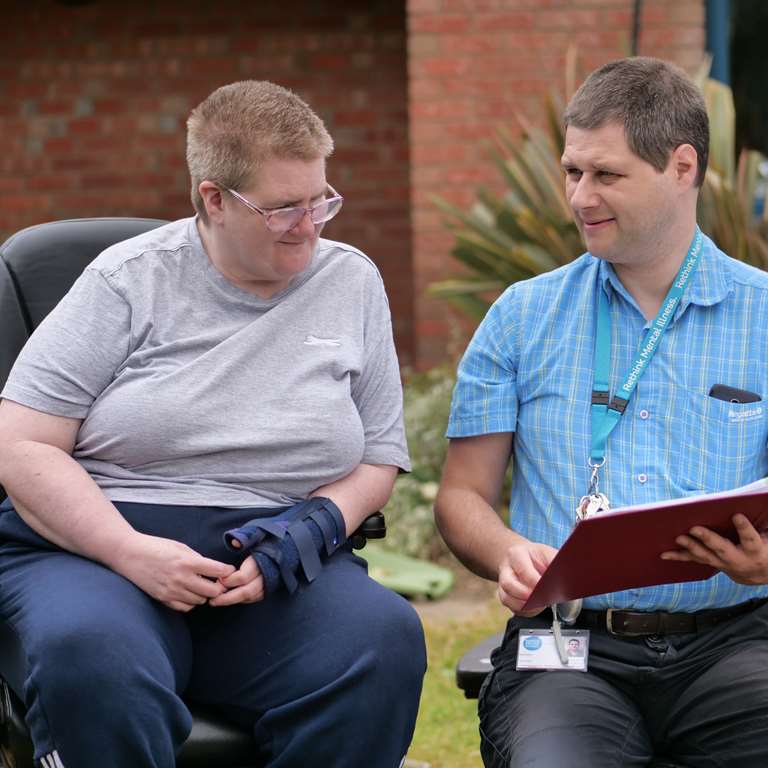The role of an advocate
We all know that frustration when it’s hard to get your voice heard, or people aren’t listening to you as they should. Unfortunately, having a mental illness or disability can sometimes mean it’s even harder to get your thoughts and opinions taken seriously by others. Our Advocacy services are free, independent and confidential.
What advocates can and can't do
An advocate can stand by you, and stand up for you, when important decisions are being made about your care, treatment and the way you live your life. They can help you understand your rights and options, and then support you in expressing your views and wishes to the relevant services. They can also speak up on your behalf if that’s what you want. People often work with an advocate when they’re going through some kind of assessment or review of their care or treatment.
What an advocate can help with
Get information and understand what it means
Explore your options and decide what you want
Contacting people, or contacting them for you
Express your feelings to others, or do this for you
Prepare for meetings, and support you at them
Stand up for your rights to get the services you need.
What an advocate can't do
Provide advice or emotional support
Make decisions for you without your input
Solve someone’s problems for them
Mediation
Provide care or home support
Agree with everything a person says.
More from Rethink Advocacy

